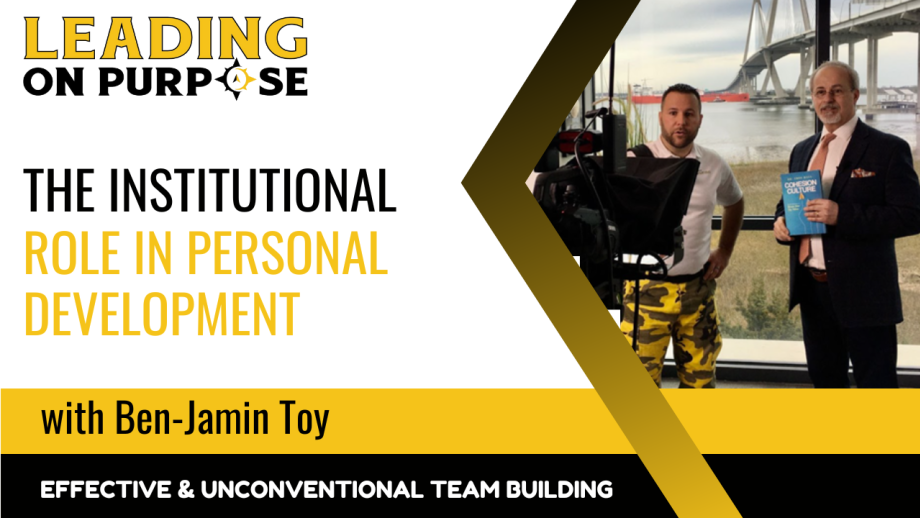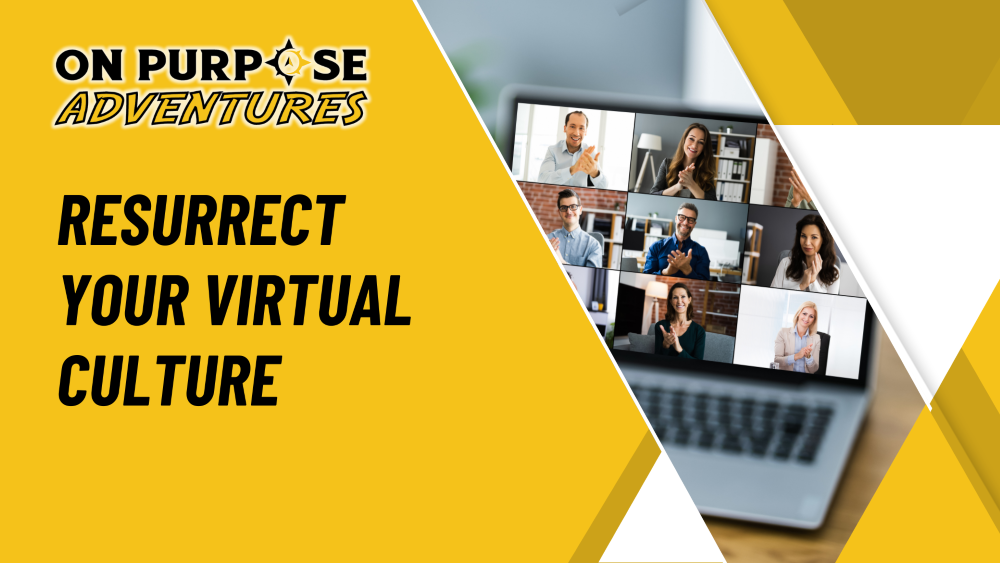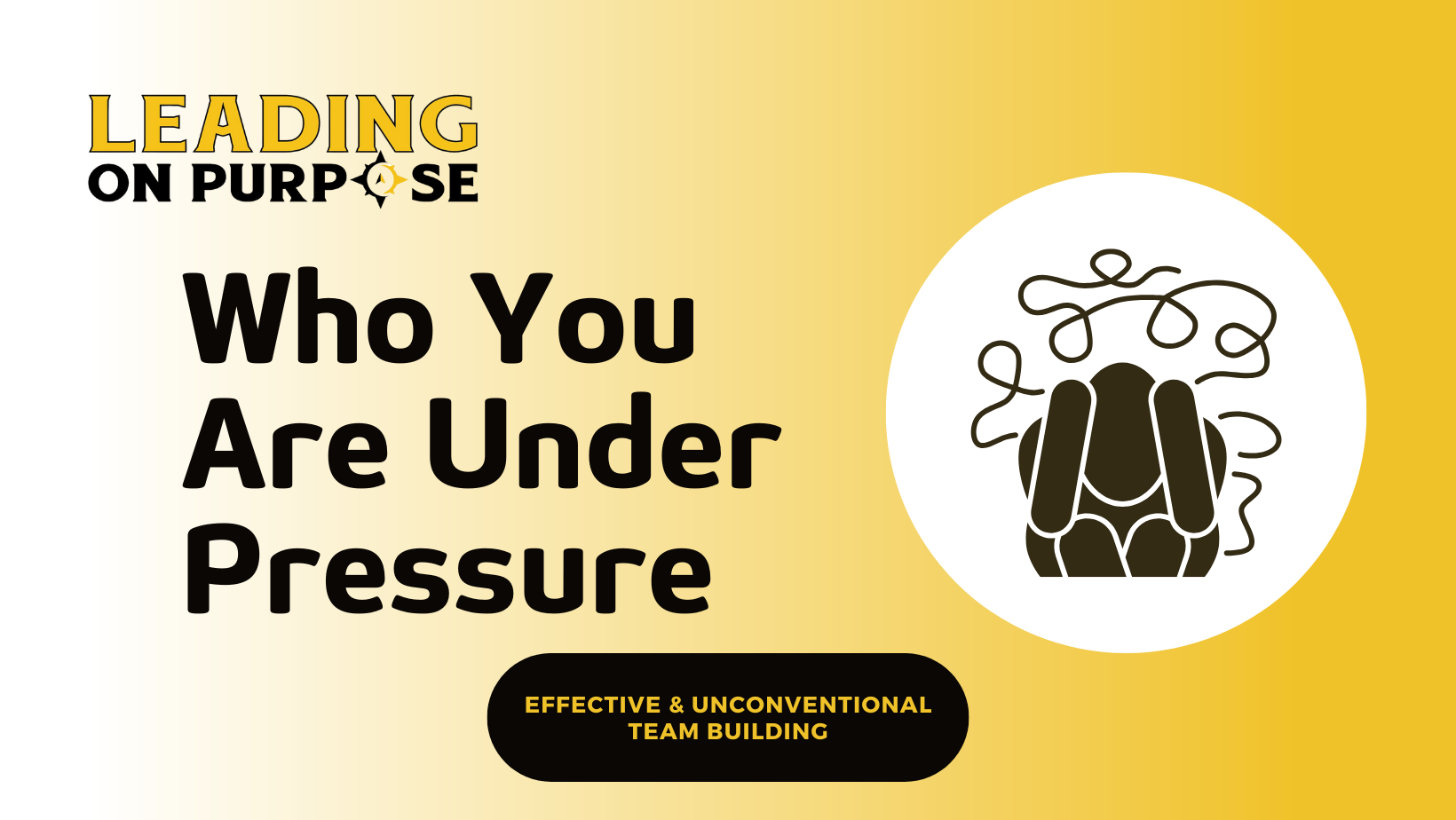
The Institutional Role in Personal Development
What sets exceptional companies apart? A shared understanding that developing their workforce is the ultimate competitive advantage.
Leaders with a transactional mindset think, "What happens if we train and invest in our employees and they leave?" Leaders with a transformative mindset think, "What if you don't and they stay?" The transformative leader understands that developing the workforce gives a competitive advantage in the long run.
In the previous Leading on Purpose blog post (click here to read), I talked about the role individuals play in personal development. I call this the influential side of personal development. Everyone can participate.
But what about the institutional side? By this I mean the role the institution, aka the company or organization, plays in personal development. What is the institution's responsibility?
A Glimpse into Employee Aspirations
A statistic from last week's Cohesion Corner™️ with Dr. Troy blog post caught my eye:
Did you know that 71% of all employees, that's two-thirds of ALL employees not just those recently hired, seek growth, development, and advancement? It's not that these folks are looking to take over the company. They desire to be ready for the next opportunity that may come their way.
Yet, 59% feel that their current organization falls short in providing these opportunities, whether due to inadequate marketing or navigating a cumbersome process.
Outside of pay, growth and development opportunities are one of the top benefits employees are searching for. This should be part of your talent retention strategy. Not only will you have more skilled and educated employees, they will be more loyal to the organization for these development offerings.
Beyond talent attraction and retention, growth and development should also be part of the onboarding process. As I previously mentioned, many employees don't even realize the development and learning opportunities their organization offers due to poor marketing. During onboarding, companies should feature, "Here's how we will help you grow and develop..."
What kinds of development opportunities can organizations offer?
The list is endless, but here are just a few ideas:
- Mentorship programs: Connect with experienced mentors for personalized guidance and career insights. 87% of mentors and mentees feel empowered by the relationship and reported greater confidence and career satisfaction.
- Cohesion Culture CORE in-person team building program or Cohesion Culture: Be a Leader Online Course: Infuse cohesion into personal interactions for impactful leadership.
- Conferences and Workshops: Stay updated on industry trends, network with professionals, and gain valuable knowledge.
- Financial Support for Higher Education: Explore opportunities for the company to contribute to employees' college expenses, especially if they pursue degrees relevant to their roles.
- Dale Carnegie: Time-tested courses on leadership, communication, and interpersonal skills.
- Toastmasters: Develop public speaking and leadership abilities in a supportive environment.
- Sandler Sales Training: Elevate sales skills and strategies for professional growth.
- MasterClasses: Learn from the best in various fields, from business to the arts.
- Memberships to podcasts, Audible, and tailored courses based on individual preferences.
- Non-job-related options like live cooking classes or music lessons can also contribute to personal growth. It doesn't always have to be job related. When people are growing it's hard to turn that off and it spills over into other areas
A Case Study
When an organization loves their people it shows. Goodway Group earned their Best Places to Work badge by taking good care of their employees. They have been a repeat client of On Purpose Adventures and today they are sharing some of the programs they offer employees.
- D3 Day - Dedicated Development Day - Outside of urgent client needs, Goodway Group has a dedicated day each month where the whole organization focuses on their development. No reoccurring meetings or non-urgent internal meetings are scheduled. They share out key content with different options of live sessions. They also make recommendations on curated content that lives within their learning and upskilling platform "Degreed".
- Development Budget - Each employee receives $1,500 PER YEAR to use towards outside programs that fuel their growth!!
- Higher Education Reimbursement Budget - Goodway Group offers $2,000 for any higher education programs employees seek, including certifications.
- TMIL - Their CEO send a monthly video sharing what he learned in the previous month. (Culture comes from the top down. Leaders showing that they are learning encourages employees to do the same.)
- Bi-Annual Summit - Twice a year the Goodway Group comes together. During this time, they offer opportunities for learning and growth through hack-a-thons, learning tracks, and keynote speakers.
If you can believe it, these are actually just a few of the learning, development, and growth opportunities Goodway Group offers to their employees. When I say this company is dialed into meeting the needs of their people, I mean it!
What do other organizations offer?
There is no need to reinvent the wheel when it comes to this topic. Lots of big corporations have put millions of dollars of research into just what employees are looking for. Here's what they're doing:
- The HEINEKEN Company runs a reverse mentoring program wherein junior employees take on the role of mentors for senior leaders and executives. The objective of this program is to offer leadership a fresh perspective on the future of work and identify potential areas for growth.
- McDonald's has a program called Archways to Opportunity®, a comprehensive education program, providing employees the chance to achieve college graduation, obtain a high school diploma, learn English as a second language, and access academic and career advising services.
- Amazon's Senior Vice President of HR says: "We think it's important to invest in our employees, and to help them gain new skills and create more professional options for themselves." Amazon does this through Amazon Technical Academy. The program is designed to equip non-technical employees for transitions into software engineering careers. These training programs instill confidence in employees, enabling them to undertake diverse roles within Amazon.
- IBM spends over $574 million per year on employee training and development. They have the largest learning and improvement program in the world. As part of their commitment to staff growth, IBM implements a leadership management process to identify, assess, and develop high-potential leaders. A notable program, Basic Blue, caters to new managers with in-house training, emphasizing emotional intelligence and coaching skills through role-playing exercises. IBM also integrates hands-on training into employee education, facilitating career advancement through job rotations. IBM employees commonly refer to this practice as "growth through rotation and transformation."
- Goldman Sachs, a renowned corporate powerhouse, prioritizes employee development through diverse learning programs, encompassing skills-based training, high-performing leadership programs, and interactive sessions such as roundtable discussions and workshops led by senior leaders. An illustrative initiative is "Talks at GS," featuring conversations and interviews with experts across various domains, including arts, entertainment, politics, and business. This program reflects Goldman Sachs' commitment to fostering continuous learning among its employees and facilitating avenues for career growth.
Regardless of the industry or company size, growth, development, and advancement opportunities is a must for every employer. This organizational strategy improves employee engagement, increases talent retention, creates cohesive workplace cultures, and gives companies a serious competitive advantage.
Visit our website (click here) to discover more about our personal development opportunities or send me a message to learn more!
If you're interested in reading more, we recommend these blog posts:









